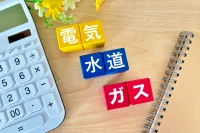What do "先輩 (Senpai)" and "後輩 (Kouhai)" mean in Japan? How it is determined and its role is also explained.

In Japan, there is a unique human relationship called "先輩 (Senpai)" or "後輩 (Kouhai)," which may be difficult for some foreigners to understand. This relationship can be seen in various situations such as schools, companies, and clubs, and is deeply rooted in Japanese society. The senpai/kouhai relationship is not merely a hierarchical relationship, but is characterized by mutual respect and mutual help in order to grow.
In this article, we will explain in detail the meaning of "senpai" and "kouhai," as well as how the relationship between senpai and kouhai is determined and what each position entails. We will also discuss the meaning of "同期 (Douki)," which is neither senior nor junior, and how it differs from "同僚 (Douryou)," which is a colleague. Please read this article to the end, as it is full of useful information for your school life and work in Japan.
▼Goandup Picks Click here for recommended articles!
- Required before studying abroad! Goandup Nihongo+, an online Japanese language learning service
- This page introduces services for foreigners who wish to study in Japan or improve their Japanese language skills to learn Japanese online.
- Goandup Salon" community for foreigners living in Japan
- We introduce an online community where foreigners living in Japan can exchange information and interact with each other to support their life in Japan.
- Goandup Study" supports foreigners who want to study in Japan.
- This section introduces study abroad support services that provide comprehensive support to foreigners who wish to study in Japan, from preparation for study abroad to living in Japan.
- Where can I buy a prepaid SIM in Japan? Recommended SIM cards for foreigners are also introduced.
- How to purchase a prepaid SIM and suitable SIM cards for foreigners.
- The Complete Guide to Pocket Wi-Fi in Japan for Foreigners!
- We introduce how to select and recommend pocket Wi-Fi products that can be used conveniently in Japan.
- The Complete Guide to Finding a Job in Japan! Finding a job, changing jobs, and part-time work for foreigners
- This site provides foreigners who want to work in Japan with comprehensive information on how to find a job, recommended job sites, and other information necessary to find a job.
What do "先輩 (Senpai)" and "後輩 (Kouhai)" mean in Japan?

Every country's society has its own hierarchical relationships, but the relationship between "senpai" (senior) and "juniors" in Japan is especially strongly considered and is the foundation of human relationships. Let us take a closer look at the meanings of the terms "senpai" and "junpai.
1. What does "先輩 (Senpai)" mean?
A "senpai" is someone in an organization or group, such as a school, workplace, or club, who has joined that organization before you, i.e., has more experience or a longer career than you. For example, if you are in your second year at a company, all employees who are in their third year or above are your senpai.
You may also refer to someone who is more experienced than you in a particular field or activity as your "senpai". For example, if you have studied Japanese for three years and someone else has studied for four years, that person could be your "Japanese senpai.”
What is the difference between "上司 (Joushi)" and "年上 (Toshiue)"?
"Senpai" is similar to "上司 (joushi, boss)" or "年上 (toshiue, senior)," but with a few differences. Since "senpai" is based on experience and career length, it is common for a boss or an older person to not be called "senpai" if his/her experience in the field is shorter than yours. In other words, the term "senpai" includes not only status and age hierarchy, but also experience in the field.
2. What does "後輩 (Kouhai)" mean?
"Kouhai" are the opposite of "senpai" and refer to those who joined an organization after you or are inexperienced in a particular field. In the case of a company, an employee who joined the company after you, and in the case of a club, a member who joined the club after you are "kouhai".
What is the difference from the analogues "部下 (Buka)" and "年下 (Toshishita)"?
Like "senpai", "kouhai" is also a term used to describe experience and career length. Therefore, even if someone is a "部下 (Buka, subordinate)" or "年下 (toshishita, younger)" than you, if he or she has more experience in the field than you, you generally do not refer to him or her as "kouhai".
What are the situations in which the senpai/kouhai relationship is used?
Senpai/kouhai relationships are found not only in schools and companies, but also in club activities, circles, and associations. When a group forms with a common goal, a senpai/kouhai relationship inevitably emerges.
For example, suppose you join a university tennis club. The people who join the circle before you are senpai and the people who join after you are kouhai. The senpai teach the kouhai tennis skills and how to run the circle. On the other hand, kouhai improve their tennis skills under the guidance of senpai.
The senpai/kouhai relationship also exists in the world of hobbies. For example, a person who enjoys photography may learn how to use a camera from his/her seniors or learn about places to take pictures.
Furthermore, older individuals are often viewed as "jinsei no senpai (life mentors)", from whom we seek guidance in life. The first time you learn about work procedures from a workplace senpai or consult them about personal issues as an adult is a true testament to respecting and relying on them as "jinsei no senpai (life mentors)".
Thus, the senpai/kouhai relationship is widespread in Japanese society and is a human relationship that can be seen in a variety of situations.
What is its role as 先輩 (Senpai) and 後輩 (Kouhai)?

The relationship between senpai and kouhai is not merely a hierarchy. It is crucial that they respect each other and serve as supports for each other's growth. Let's take a closer look at the respective roles of senpai and kouhai.
Role as a senpai
As a senpai, your role is to utilize your experience and knowledge to support the growth of your kouhai. This role is multifaceted and includes the following
1. teach knowledge and experience to kouhai
Senpai possess extensive knowledge and skills from their longer experience in their fields. They play a crucial role in passing this knowledge to kouhai, thereby enhancing their growth.
For example, when a sepai employee guides a new employee on how to proceed with work, or a senpai club member teaches techniques to new members, these are good examples of fulfilling this role.
2. follow up on mistakes made by kouhai
Less experienced kouhai may sometimes make mistakes. During such times, it is important for senpai to not blame but to cover for them. Learning from failures is significant, but with the senpai's support, kouhai can feel secure to take on new challenges.
3. watching over the growth of kouhai employees and sometimes strictly guiding them
Senpai should be good understanding mentors and, at times, strict instructors. If a kouhai's actions contradict the organization's policies, it is the duty of the senpai to point this out and correct them. However, in doing so, a senpai must never forget their desire for the kouhai's growth.
4. support kouhai in their daily life
In the student world or in the realms of art and sports, where economic stability might be lacking, senpai might also support kouhai in their daily lives. For instance, treating them to meals or lending them money are expressions of the senpai's caring nature. However, this is based purely on goodwill and is not a duty of the senpai.
Role as a kouhai
Juniors are in a position to learn much from their seniors. Therefore, they are expected to remain humble and fulfill the following roles
1. learn from senpai to gain skills and experience
A kouhai is in a position to learn a great deal from their senpai. Therefore, they are expected to maintain a humble attitude and fulfill the following roles.
2. support for senpai
Kouhai also have a role in supporting their senpai. For example, by helping with the senpai's work or following their instructions, kouhai can help reduce the burden on their senpai. Listening to the senpai and occasionally acting as a consultant also constitutes a unique form of support that kouhai can provide.
3. improve oneself with one's senpai as one's goal
Senpai serve as role models for kouhai. Seeing how senpai conduct themselves, kouhai may aspire to be like them. It is necessary for kouhai to emulate the good qualities of their senpai and continually improve themselves.
4. learn the role as a senpai
Kouhai learn how to be senpai through their interactions with senpai. It is essential for kouhai to apply the guidance and consideration they receive from their senpai to their own future kouhai. This allows them to pass on the baton received from their senpai to the next generation.
How to determine 先輩 (Senpai) and 後輩 (Kouhai)

For Japanese people, the senpai/kouhai relationship is naturally determined, but it may be difficult for foreigners to understand. Here, we will explain in detail how senpai/kouhai is determined.
Basically, it's determined by the length of your career.
The senpai/kouhai relationship is basically determined by the length of one's career within that organization or group. In other words, members who joined earlier become senpai, while those who joined later become kouhai. This principle applies to most organizations, such as schools, companies, and clubs.
However, it is also true that there are some differences depending on the organization. For example, in university clubs, it is common for people in higher grades to become senpai. On the other hand, in companies, people who joined in the same year are considered peers and do not have a senpai/kouhai relationship. In this way, it is important to understand that the way senpai/kouhai are determined differs depending on the nature of the organization.
Age and status don't matter.
The senpai/kouhai relationship is not related to age or status. For example, let's say someone has become a department manager in a company. Even if that person is younger than employees who joined the company later, as long as they joined earlier, that department manager is the senpai.
Also, even within the same organization, the senpai/kouhai relationship changes if the department is different. For example, if a senpai from the sales department is transferred to the accounting department, it's possible for them to become a kouhai in the accounting department.
In other words, let's keep in mind that the senpai/kouhai relationship is determined by the length of one's career within that organization or group, and is unrelated to age or status.
There is no reversal in position or performance.
Once the senpai/kouhai relationship is determined, it basically doesn't change. In other words, even if the kouhai surpasses the senpai and gets promoted, the senpai/kouhai relationship doesn't change.
For example, let's say there is a senpai who joined the company 5 years ago and a kouhai who joined 3 years ago. Even if that kouhai achieves excellent results and gets promoted faster than the senpai, becoming the senpai's boss, the senpai who joined 2 years earlier is still the senpai from the kouhai's perspective.
In this way, it's important to understand that once determined, the senpai/kouhai relationship doesn't change easily since it's based on the length of one's career.
What is the meaning of "Synchronization (Douki)" which is neither 先輩 (Senpai) nor 後輩 (Kouhai)?

We mentioned that the senpai/kouhai relationship is determined by the length of one's career. So, what kind of relationship do people who joined an organization at the exact same time have? In Japanese, such people are referred to as "同期 (Douki)".
"Douki" refers to people who joined the same organization or started the same activity at the same time. For example, students who entered university in the same year are called "同期生 (doukisei, students of the same year)", and employees who joined a company in the same year are called "同期入社 (doukinyuusha, employees who joined the company at the same time)".
Unlike the senpai/kouhai relationship, douki have an equal relationship. It is said that douki have a strong sense of solidarity because they are aware that they are starting from the same point. They can share joys and struggles as they go through the same experiences at the same time.
When one becomes a working adult, the presence of douki becomes very important. This is because douki are reliable allies who stand at the same level as you within the organization. When you are troubled with work, consulting with your douki may lead to finding a solution to the problem.
Furthermore, douki are also good rivals who can stimulate each other's growth. As they start their careers at the same time, they can motivate each other's development.
What is the difference from the analogy "colleague (Douryou)"?
There is a word similar to "同期 (Douki)" called "同僚 (Douryou)". "Douryou" is a word that refers to all members working in the same workplace, including senpai, kouhai, and douki. In other words, "douryou" is a broader concept than "douki".
For example, if you say, "He is my douryou," it is not clear whether that person is a douki, senpai, or kouhai. On the other hand, if you say, "He is my douki," it clearly conveys that you joined the company at the same time as that person.
In this way, let's understand that "douryou" is a word referring to colleagues in general at the workplace, while "douki" specifically refers to people who joined the organization at the same time.
Useful information and support for living in Japan

Living in Japan is fascinating, but it is not uncommon to face many challenges due to language barriers and cultural differences. For example, you may encounter difficulties in all aspects of life, from using keigo (honorific expressions) in everyday and business situations, to difficulties in finding housing, using public services, preparing for the JLPT exam, and even meeting new friends and loved ones.
At such times, Goandup Salon will be your reliable partner!
Our community provides support and information to help foreign residents in Japan to make their life in Japan richer and more comfortable.
- Japanese Language Studywill meet the needs of all levels, from daily conversation to the use of keigo in business situations, to efficient Japanese language learning methods and preparation for the JLPT exam.
- livingaspect of the program provides concrete advice and information on how to establish a foundation for living in Japan, including explanations of Japanese culture and rules, finding housing, and how to contract public services and living infrastructure.
- Jobs & CareersRegarding the "what if" section, we can help you find a job, change jobs, and understand Japanese business etiquette and workplace culture, which are key to a successful career in the workplace.
- Travel & Dining Guidewill introduce you to hidden gems in Japan, must-try gourmet information, and other unique local attractions to help you experience Japan more deeply.
If you have any questions or concerns about life in Japan, Goandup Salon is here to help you! We will wholeheartedly support you to make your life in Japan smoother and more enjoyable.
For more information, click here ▼
summary
For foreigners, understanding the unique senpai/kouhai relationship in Japan might feel a bit challenging. However, this relationship is deeply rooted in Japanese society and can be seen in all sorts of organizations, including schools and companies.
When belonging to a Japanese organization, it is important to understand one's own position. And to show respect to senpai, to treat kouhai with compassion, and to cooperate and grow together with douki. By having this mindset, one can build the unique human relationships found in Japan.
It may be difficult to immediately understand the relationships between senpai, kouhai, and douki, but hopefully, through this article, you have grasped an overview of it. When studying or working in Japan, please try to make use of this knowledge. It will surely enable you to lead a more fulfilling life in Japan.






